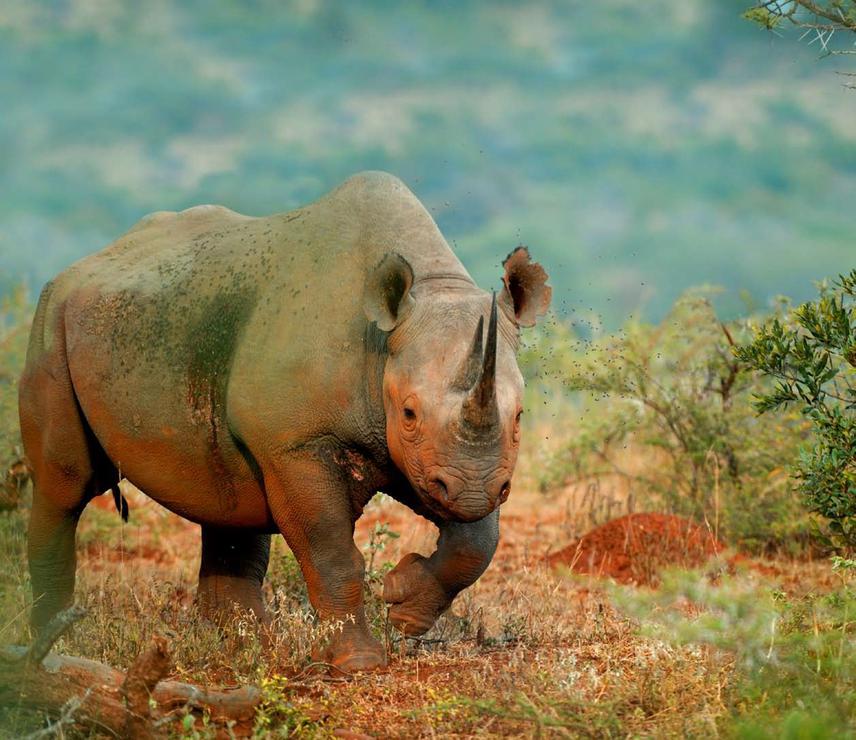Social media video featuring the project.
Roan Plotz
This project aims to test the utility of a new field-based faecal pregnancy assay as a monitoring tool for assessing the population performance of Hluhluwe-iMfolozi Park’s strategic donor population of black rhinoceros.

Recently, both biologists and conservation managers have voiced concerns that the breeding performance of Hluhluwe-iMfolozi Park’s (HiP) black rhinoceros may be poor or even in decline. HiP has strategic importance in the conservation of the black rhinoceros because it contains the largest endemic population of the D. b. minor sub-species. Consequently, it serves as a major donor of black rhinoceros for ongoing meta-population management and range expansion and is integral to the future recovery of this critically endangered species.
Historically, population wide pregnancy testing depended upon expensive and slow laboratory-based assays. I am fortunate to be collaborating with a group who have already developed a rapid field-based pregnancy test for the endangered black rhinoceros. Importantly, this new field pregnancy test uses faeces, rather than serum or saliva, and so is cheaper, less risky, and better suited to the monitoring of large free-ranging endangered mammal species, like black rhinoceros, in remote and difficult environments. We will install radio-transmitters into a select cohort of adult female black rhinoceros, so that with the use of radio-telemetry it will make it easier for local Zulu field rangers and me to collect sufficient and regular faecal samples that will then be analysed in order to determine pregnancy rates.
HiP has some of the highest predator densities of any reserve and this may be impacting on calf survival. Alternatively, low pregnancy rates or high pregnancy loss may be due to poor range quality and/or rhino densities exceeding the reserves capacity. Ordinarily it is difficult to assess black rhinoceros breeding performance and detailed reproductive monitoring that includes pregnancy testing is urgently needed. Determining at what stage recruitment is being impacted most depends on using new advances in rapid field-based pregnancy testing in tandem with on going monitoring of births and calf survival. Key to speeding black rhino recovery is determining what impacts most on breeding performance, how and at what stage they impact most, and how their impact might be ameliorated.